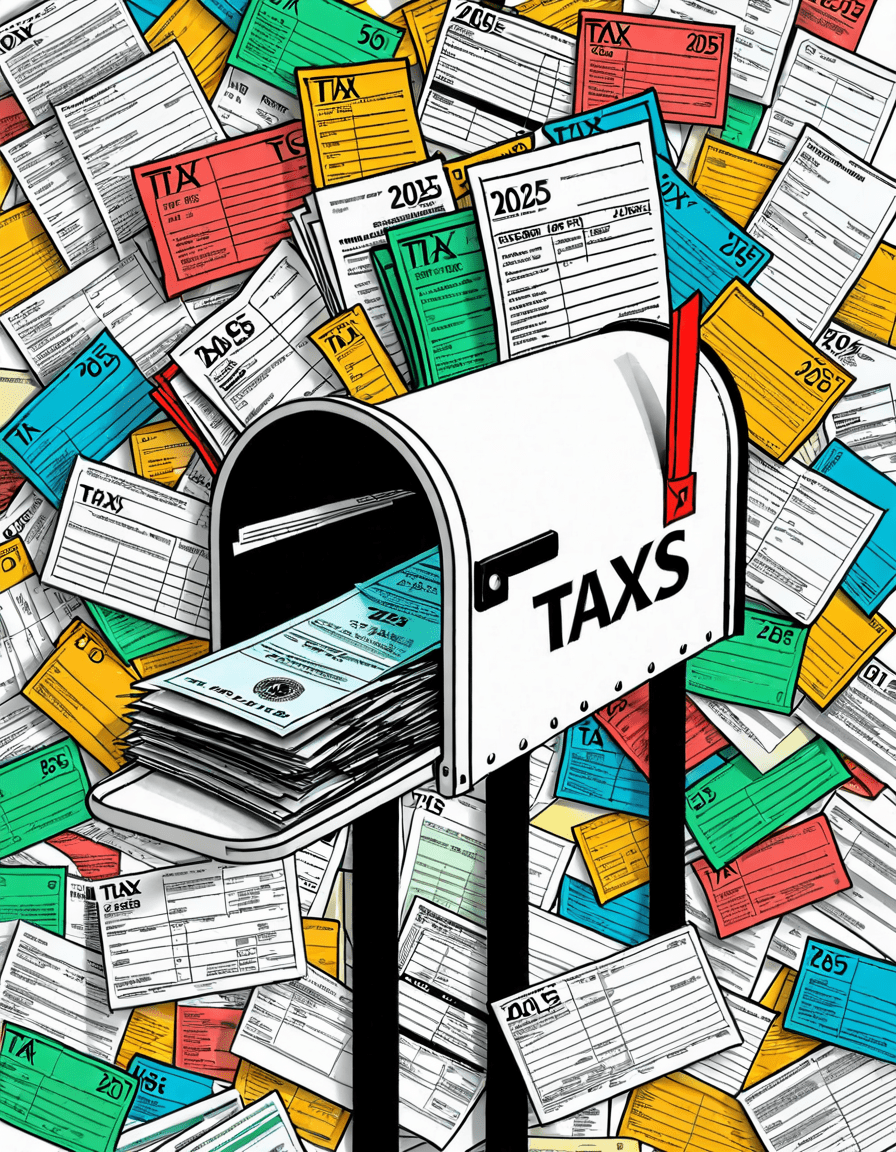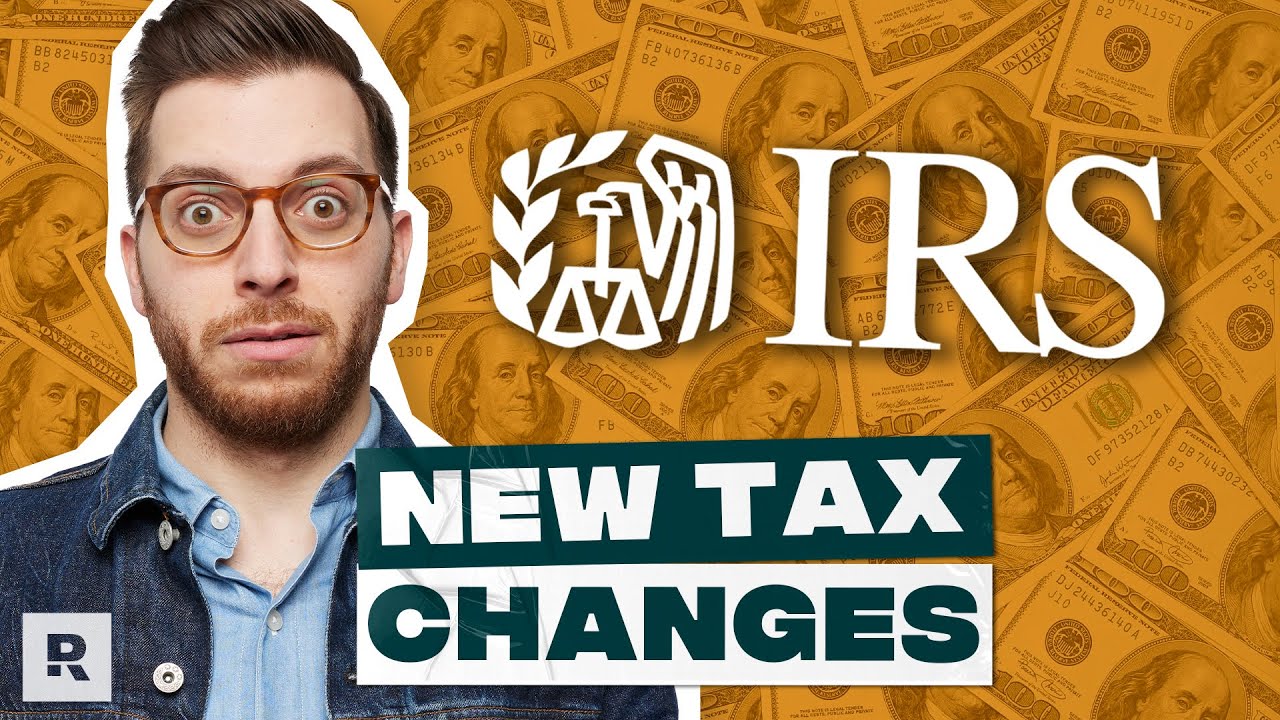Navigating the world of taxes 2025 can feel like walking through a maze. With upcoming changes set to reshape the financial landscape, it’s all hands on deck for taxpayers eager to stay ahead. This article breaks down crucial modifications in tax legislation, deductions, credits, and other essential aspects that may significantly impact individuals and businesses alike come tax season. Buckle up as we dive into the key changes you need to be aware of for the year 2025!

Top 7 Changes in Taxes 2025 That Could Affect You

1. Increased Standard Deduction
One of the most noteworthy changes in taxes 2025 is the projected increase in the standard deduction. For 2025, estimates suggest that the standard deduction will rise to around $15,000 for single filers and $30,000 for married couples filing jointly. That’s a significant bump from $13,850 and $27,700 in 2023! This change can ease the financial burden on many taxpayers by lowering their taxable income and potentially leading to significant savings.
Imagine a family considering a new home purchase or a couple planning a long-awaited vacation. With the increased deduction, they’ll have more disposable income at their fingertips. It’s like finding extra cash in your jacket pocket; every little bit helps.
2. Adjustments to Tax Brackets
When we talk about taxes 2025, it’s impossible to overlook anticipated adjustments to tax brackets. The IRS typically reassesses these brackets to account for inflation. For example, the 22% tax bracket, which currently begins at $89,075 for single filers, could shift upwards. This means more taxpayers might find themselves in lower brackets, reducing their overall tax liability.
This change could make a world of difference for middle-class families stretching their budgets. For those working hard to earn a decent living, keeping more of what you make can be a game-changer, especially when saving for a large purchase like a home.
3. Child Tax Credit Modifications
The Child Tax Credit (CTC) is another area where changes in taxes 2025 could hit hard. The CTC, which was expanded during the pandemic, is expected to revert to its pre-pandemic limits. This means that in 2025, families will receive $2,000 per qualifying child under the age of 17, down from the enhanced amounts seen in 2021.
If you had kids benefiting from the larger credits, this change could create a gap in your budget. Families need to prepare for this shift to avoid surprises at tax time. Make sure to account for it in your future financial plans.
4. Enhanced Retirement Contribution Limits
Savings for retirement will become a little easier with the introduction of increased contribution limits for retirement accounts. For 2025, the contribution limit for a 401(k) is likely to rise to $20,500, allowing people to stash away more for their golden years. This not only fosters a culture of saving but also helps particularly in reducing your current taxable income.
The more you save now, the less you might owe later. Think of it as building a safety net for the future while also smoothing out your tax responsibilities. It’s a win-win!
5. Changes to Capital Gains Tax Rates
When it comes to taxes 2025, capital gains tax is an area to keep an eye on. The thresholds for long-term capital gains may see some shifts, particularly for high earners who might face increased rates. Individuals profiting from stock sales or real estate transactions could find their profits taxed at a higher rate, making strategic financial planning essential.
Understanding these potential changes means that savvy investors can adjust their strategies accordingly. Timing could become everything when you’re deciding to sell an asset or cash in on investments to minimize tax liabilities.
6. New Reporting Requirements for Gig Economy Workers
With the gig economy booming, freelancers and contract workers will face renewed scrutiny in taxes 2025. New reporting rules will kick in for individuals earning over $600 annually through various platforms. This means tighter IRS regulations and additional paperwork that many may find overwhelming.
To help avoid any headaches, gig workers can brush up on tracking their earnings and expenses. Implementing good record-keeping practices can be their best ally in managing this shift. The last thing anyone wants is an unexpected audit while they’re just trying to get by.
7. Green Energy Tax Incentives
One of the most exciting changes in taxes 2025 will be the expansion of tax incentives for homeowners investing in renewable energy systems. This initiative underscores the government’s commitment to greener living. Homeowners who install solar panels can anticipate larger tax credits in 2025, which enhance their ability to lower taxable income while contributing to eco-friendly solutions.
It’s an excellent opportunity for those looking to make their home more sustainable. Not only does it help the environment, but it may also positively impact your finances via substantial tax savings.

Ensuring Financial Resilience Amid Tax Changes
As we approach taxes 2025, staying informed is vital for individuals, families, and business owners. Proactive financial planning and consultation with tax professionals can help steer you through these changes effectively. Whether it’s maximizing your deductions, adjusting your investment strategies, or preparing compliance documents for new reporting requirements, being prepared empowers taxpayers to make savvy decisions and realize significant savings.
In this ever-shifting landscape of taxes 2025, planning effectively means ensuring financial resilience. Knowing the ins and outs of the upcoming changes allows taxpayers to face financial challenges head-on with confidence. So as 2025 rolls around, grasp these shifts and take control of your financial future. After all, a little knowledge goes a long way in securing your place in the financial world!
By keeping these changes in mind, you can put yourself in a stronger position for tax season while also optimizing your mortgage opportunities with the knowledgeable resources available at Mortgage Rater. By investing time in understanding these updates, you can confidently navigate the tumultuous seas of taxes 2025 and emerge victorious. Happy planning!

Taxes 2025: Fun Facts and Trivia You’ll Want to Know
The Scoop on Taxes 2025
As we zip toward 2025, changes to taxes can feel like a rollercoaster ride. Did you know that tax brackets might play a pivotal role in shaping your financial future? For instance, depending on your filing status—especially for those filing as married couples—it’s worth peeking at the updated tax Brackets 2025 married jointly to see where you land. It’s pretty wild how these numbers can influence both your take-home pay and your summer BBQ plans!
Speaking of plans, taxes can feel just as soft and comfy as a Fluffle standard cloud bed. They might not be the most exciting topic, but understanding the nitty-gritty can lead to some sweet savings. Transitioning into deductions and credits might sound daunting, but folks—there’s a chance to nab some extra cash! Be on the lookout for changes that could benefit you.
Little-Known Tax Tidbits
Now, here’s a fun trivia nugget. Did you realize that tax rules can shift just like trends on the internet, where some folks can easily swap out serious memes for sexy Memes? One such trend is the changes associated with retirement accounts. Smart savers may find refreshed limits on contributions in 2025, allowing you to lock in your legacy while doing flips over your investment returns!
And don’t forget the tax implications of side hustles. Whether you’re picking up some shifts or having a picnic with savings from places like Party City, knowing how to report your earnings is key. Heck, you might even celebrate with a pizza from Papa John’s—don’t sleep on that Papa John ‘s $ 10 Promo code! It’s tantalizing to think how small savings here and there can add up in your pocket when tax time comes around.
So, as 2025 approaches, remember that our tax landscape can shift more than just a video game lineup, like the series of Arkham Games in order. Keep an eye on evolving regulations to ensure your financial strategy is in sync with these developments, because understanding the subtle nuances may just be the key to unlocking peace of mind.



